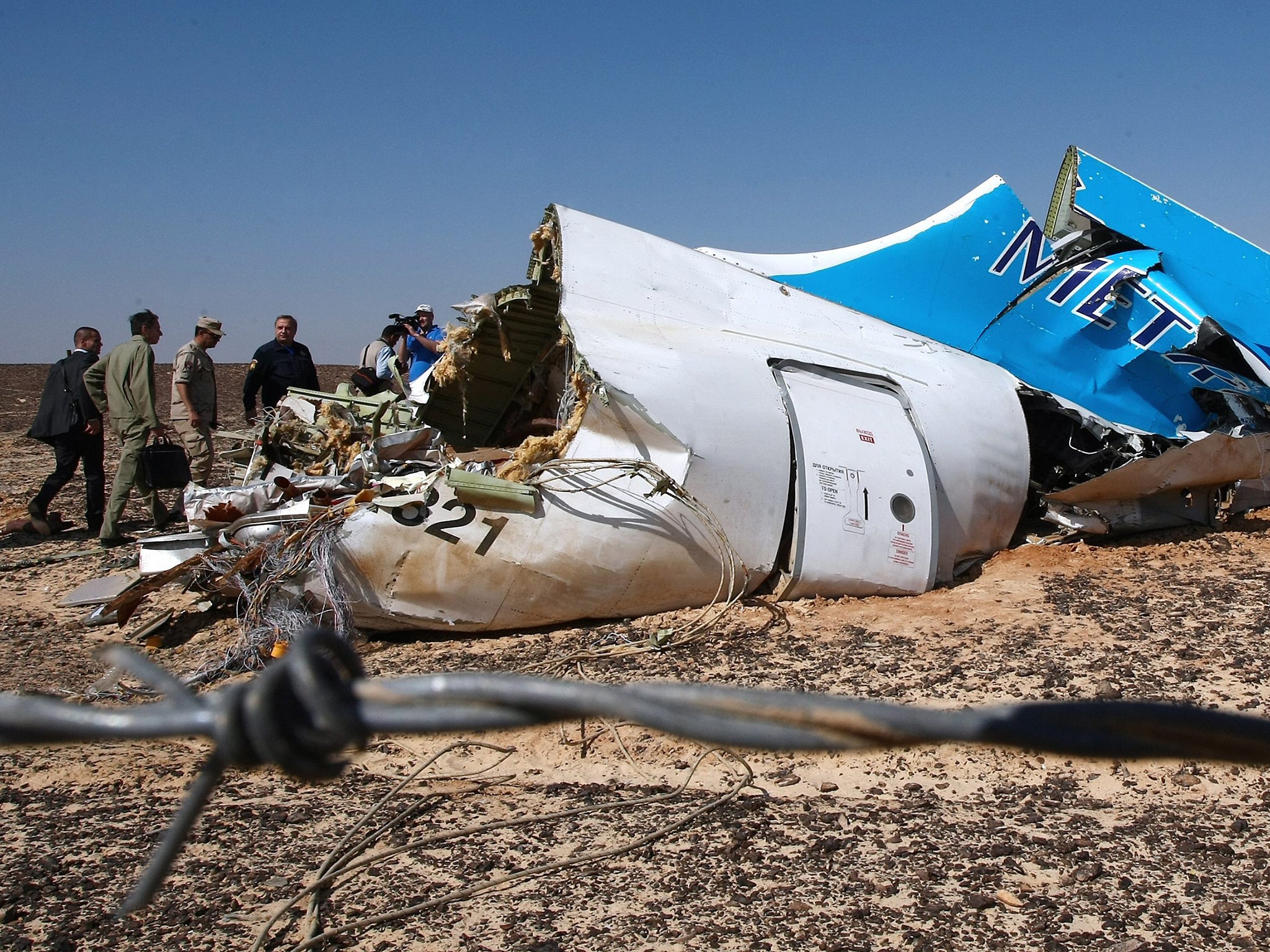Isis plane attack: Egypt admits 'terrorists' downed Russian Metrojet flight from Sharm el-Sheikh for first time
Officials had previously denied Isis claims of responsibility and an Egyptian report claimed there was no evidence of 'terrorist action' in December

Your support helps us to tell the story
From reproductive rights to climate change to Big Tech, The Independent is on the ground when the story is developing. Whether it's investigating the financials of Elon Musk's pro-Trump PAC or producing our latest documentary, 'The A Word', which shines a light on the American women fighting for reproductive rights, we know how important it is to parse out the facts from the messaging.
At such a critical moment in US history, we need reporters on the ground. Your donation allows us to keep sending journalists to speak to both sides of the story.
The Independent is trusted by Americans across the entire political spectrum. And unlike many other quality news outlets, we choose not to lock Americans out of our reporting and analysis with paywalls. We believe quality journalism should be available to everyone, paid for by those who can afford it.
Your support makes all the difference.Egyptian authorities has said terrorists downed a Russian passenger plane from Sharm el-Sheikh to damage the country’s tourist industry after months of denying Isis claims of responsibility.
Metrojet flight 9268 was just 23 minutes into its journey to St Petersburg when it crashed on 31 October, killing all 224 passengers and crew on board.
An Egyptian faction of the so-called Islamic State, Wilayat Sinai, immediately claimed responsibility but local authorities initially maintaining a technical problem was to blame for the disaster.
Weeks later, an Isis propaganda magazine published photos claiming to show the improvised explosive device that had brought the plane down after being hidden inside a can of Schweppes Gold pineapple juice.
But as countries including Russia and the UK cancelled flights to Sharm el-Sheikh, a Red Sea resort integral to Egypt’s tourism industry, the country released its own report claiming the civil aviation ministry had “so far not found anything indicating any illegal intervention or terrorist action”.
That position appears to have been abandoned on Wednesday, as President Abdel Fattah al-Sisi made an impassioned speech on terrorism.
“Has terrorism ended, no it has not but it will if we unite,” the said.
“Whoever downed the Russian plane, what did they want? They wanted to hit tourism, and to hit relations with Russia.”
The comments were the first official Egyptian indication that the plane was deliberately downed.
Official confirmation that a bomb brought down the Airbus A321 could potentially expose Egypt to compensation payments to victim’s families.
The country is fighting against Isis-affiliated insurgents in the Sinai Peninsula who have claimed responsibility for a wave of bombing and shooting attacks around the country, including near the Pyramids and other tourist attractions.
Authorities have sought to play down a series of incidents, calling men who stabbed tourists at a hotel in Hurghada "drugged" and claiming security services were the target at a Cairo hotel.
Moscow stopped all civilian flights to Egypt, a popular destination for Russian tourists, after the crash and the UK was among several other nations stopping their airlines operating routes from Sharm el-Sheikh.
The crash was the worst aviation disaster in Russian history and came during an intensified periods of terror attacks claimed by Isis, including the bombings in Paris, Beirut, Tunis and the massacres that killed 130 people in Paris.
Additional reporting by Reuters
Join our commenting forum
Join thought-provoking conversations, follow other Independent readers and see their replies
Comments